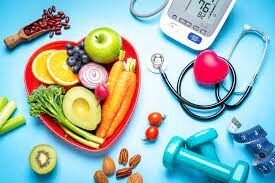The Cardiac Diet: Your Guide to a Heart-Healthy Lifestyle
Your heart is the engine that keeps you going, and it’s crucial to keep it running smoothly. One of the best ways to do that is to follow a cardiac diet. This specialized diet focuses on foods that promote heart health and reduce the risk of cardiovascular disease, the leading cause of death worldwide.
What is a cardiac diet?
The cardiac diet, also known as the heart-healthy diet, is an eating plan that emphasizes foods proven to benefit your heart. It focuses on:
- Plenty of fruits, vegetables, and whole grains: These foods are packed with vitamins, minerals, fiber, and antioxidants, all of which contribute to heart health.
- Lean protein sources: Choose lean meats like skinless chicken and fish, as well as plant-based proteins like beans and lentils.
- Healthy fats: Include sources of healthy fats like olive oil, avocados, and nuts in your diet.
- Limited saturated and trans fats: These unhealthy fats can raise cholesterol levels and increase your risk of heart disease.
- Minimal sodium: Limit your sodium intake to no more than 2,300 milligrams per day, ideally aiming for 1,500mg or less.
Benefits of a cardiac diet:
Following a cardiac diet can offer numerous benefits for your heart health, including:
- Lower blood pressure: This is one of the most significant benefits of a cardiac diet. By reducing your sodium intake and consuming potassium-rich foods, you can help regulate your blood pressure.
- Reduced cholesterol levels: A heart-healthy diet can help lower your LDL (“bad”) cholesterol levels and raise your HDL (“good”) cholesterol levels, reducing your risk of heart disease.
- Improved blood sugar control: This diet can help improve blood sugar control, especially important for individuals with diabetes or prediabetes.
- Weight management: Eating a healthy diet can help you maintain a healthy weight, reducing your risk of heart disease and other chronic conditions.
- Reduced risk of heart disease: By lowering your cholesterol, blood pressure, and improving other risk factors, a cardiac diet can significantly reduce your risk of developing heart disease.
Foods to include in a cardiac diet:
Here are some of the best foods to include in a cardiac diet:
- Fruits: Berries, citrus fruits, apples, pears, bananas, etc.
- Vegetables: Leafy greens, broccoli, carrots, tomatoes, avocados, etc.
- Whole grains: Brown rice, quinoa, oats, whole-wheat bread, etc.
- Lean protein: Skinless chicken, turkey, fish, beans, lentils, tofu, etc.
- Healthy fats: Olive oil, avocados, nuts, seeds, etc.
- Dairy products: Low-fat or fat-free milk, yogurt, cheese, etc.
Foods to limit or avoid in a cardiac diet:
Here are some of the foods you should limit or avoid in a cardiac diet:
- Red meat: Limit red meat consumption and opt for leaner cuts when possible.
- Processed meats: Avoid processed meats like sausages, hot dogs, and bacon.
- Fried foods: Fried foods are high in unhealthy fats and calories.
- Sugary drinks: Limit your intake of sugary drinks like soda, juice, and sweetened tea.
- Baked goods: Cakes, cookies, pastries, and other baked goods are often high in saturated and trans fats, sugar, and sodium.
- Fast food: Fast food is typically high in unhealthy fats, sodium, and calories.
Tips for following a cardiac diet:
Here are some tips for successfully incorporating a cardiac diet into your lifestyle:
- Plan your meals and snacks: Planning ahead can help you make healthy choices and avoid unhealthy temptations.
- Cook more meals at home: This allows you to control the ingredients in your food.
- Read food labels: Pay attention to the serving size, calories, fat, cholesterol, sodium, and added sugar content of the foods you eat.
- Start with small changes: Don’t try to change your diet overnight. Start by making small changes, such as adding a serving of fruit or vegetables to your meals or swapping sugary drinks for water.
- Get support: Talk to your doctor or a registered dietitian for personalized guidance and support in creating a heart-healthy diet that fits your needs.
Additional resources:
- American Heart Association: https://www.heart.org/
- National Heart, Lung, and Blood Institute: https://www.nhlbi.nih.gov/
- Academy of Nutrition and Dietetics:
Thanks for visiting Gymbag4u.com
You may also like our following articles Heart Healthy Diet: A Guide to Eating for a Healthy Heart – GymBag4U and How to Reduce Your Risk of Heart Disease – GymBag4U and Preventing Heart Disease Essential Precautions, You Need to Take (gymbag4u.com)
